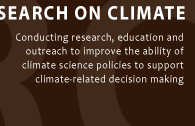

LEADERSHIP IN CONGRESS: |
|
Congressman Brown was simultaneously a champion of science in the U.S. and a provocateur, challenging science to examine its role in serving society. Even before his election as Chair of the House Committee on Science, Space and Technology, Brown urged scientists to think hard about their role in society, and how their research might be useful, though it often put him at odds with Nobel-prize winning scientists. He did not accept that scientific research was automatically useful. Nor did Brown accept the premise that the application of science was uniformly beneficial to society—he recognized that negative consequences were also possible and that part of science’s responsibility was in assessing the implications of science and technology and their appropriate role in society. A man of impeccable integrity, Brown did not shy away from speaking the truth as he saw it, no matter the constituency, and he consistently opposed research he viewed as contributing to bad outcomes, such as breeder reactors and anti-satellite weapons. |
 |
Brown was instrumental in creating links between politics and science and technology, including the Office of Technology Assessment and the Office of Science and Technology Policy, which was formed to advise the President on matters of science and technology and their effects. Among his many accomplishments, Brown led the establishment of the National Climate Program through passage of the National Climate Program Act of 1978. Some of the pioneering elements of that act have become an essential part of climate science today: assessments of the effect of climate on natural and social systems, conducting both basic and applied research to understand natural processes and the social and political implications of climate change, and global monitoring and forecasting. These career achievements reflect Brown’s constant belief that scientists had to accept accountability for the social outcomes they helped to create. Through his tireless leadership, love of science, and passion for social justice, Brown enlarged the boundaries on which science engaged societal values, paving the way for a new vision of usable science. (See Congress and Usable Science). |
|